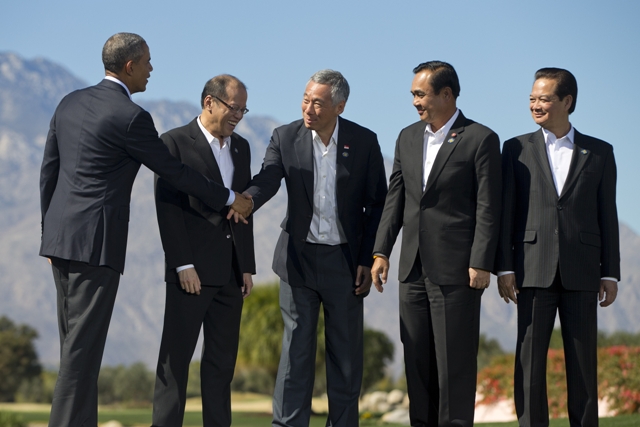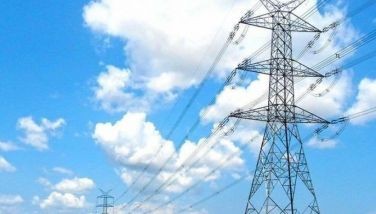Hague ruling a chance for EU, US to show solidarity, experts say
MANILA, Philippines — American foreign policy experts have advised the United States and the European Union to release a joint statement to support the outcome of the arbitration case between the Philippines and China.
In a recent policy report, a group of analysts at influential Washington-based think tank Center for Strategic and International Studies said a joint message backing maritime law as the Permanent Court of Arbitration releases its ruling on conflicting South China Sea claims would be a solid step for the EU to express its role in the rapidly rising Asia-Pacific region.
"The forthcoming ruling of the Arbitral Tribunal in The Hague in response to the Philippines' claim against China could be an important and fast-approaching opportunity," said authors Conley, James Mina and Phuong Nguyen in "A Rebalanced Transatlantic Policy toward the Asia-Pacific Region."
Although the US and the EU have some competing, even divergent, policies toward the Asia-Pacific, they can further strengthen a common foreign and security policy vision, the report said.
"A ruling in support of the Philippines could be an opportunity to strengthen international legal norms and highlight for China the increased international reputational risks of maintaining a position that is not accepted by its main trading partners," the report said.
The EU and the US, moreover, have a common "strategic imperative" to ensure international norms and rules are managed and upheld in the region whose security is at risk of being destabilized.
In recent months, US naval forces have conducted freedom of navigation operations in the South China Sea, with some missions sailing near artificial islands of China where it claims jurisdiction over the waters.
While the US has maintained military and naval deployments in the region for decades, the EU cannot be expected to do the same given its limited defense resources and "anemic" spending, the report said.
It also noted that while the EU intends to become a credible security actor in the region, "it has done little to achieve this objective."
"The European Union does not view itself as a geopolitical actor in Asia, yet it is a direct beneficiary of the US naval presence and open sea lines in the South China Sea at a time when EU countries are expanding economic and diplomatic engagement in the region," the report said.
The EU, however, can push for international law in Asia-Pacific and impose costs for violations.
"Europe can and should play a larger role in reinforcing international legal norms and potentially imposing costs should international law be violated," it said.
Pushing for ASEAN code of conduct
Another venue for the US and EU to cooperate is in jointly calling for the completion of the long-pending maritime code of conduct among members of the Association of Southeast Asian Nations.
A binding code was being negotiated for years to effectively implement the Declaration on the conduct of parties in the South China Sea signed by ASEAN-member states and China in 2002.

In this Feb. 16, 2016 photo, President Barack Obama, left, shakes hands with Singapore Prime Minister Lee Hsien Loong, center, after posing for a group photo with other leaders of ASEAN, the 10-nation Association of Southeast Asian Nations at the Annenberg Retreat at Sunnylands in Rancho Mirage, Calif. From left are, (former) Philippine President Benigno Aquino III, Thailand Prime Minister Prayuth Chan-ocha, Vietnam Prime Minister Nguyen Tan Dung. AP/Pablo Martinez Monsivais
"Following the Arbitral Tribunal ruling, the United States and the European Union, with ASEAN members, should revitalize the pursuit of a code of conduct," the authors wrote.
With Laos chairing ASEAN this year, a Vientiane declaration could be drafted similar to a 2008 agreement among five Arctic states to abide by the United Nations Convention on the Law of the Sea.
The arbitral court recently announced that the decision on the case is set on July 12. China, meanwhile, said it would not recognize the case filed by the Philippines.
Bower, who was recently in Manila, said ASEAN as a bloc should itself be united against unilateral actions of China in the waterway and issue a robust response after the arbitration award.
"ASEAN should step up with a very strong statement," Bower said at a forum at the University of the Philippines last month.
Dismissing speculations that some ASEAN members appear to be siding with China on the case, Bower said "there's more ASEAN unity in there that meets the eye."
- Latest
- Trending


























